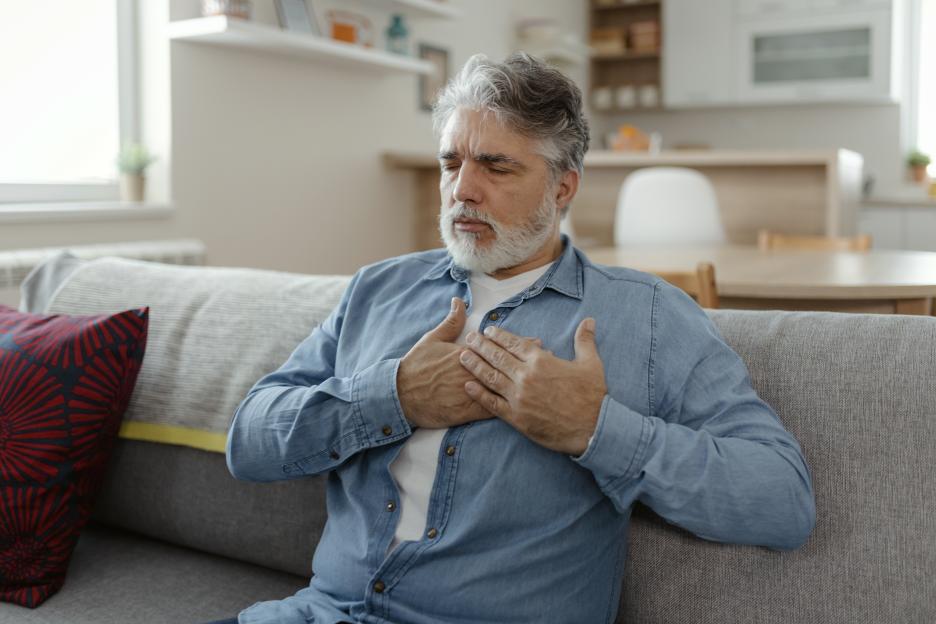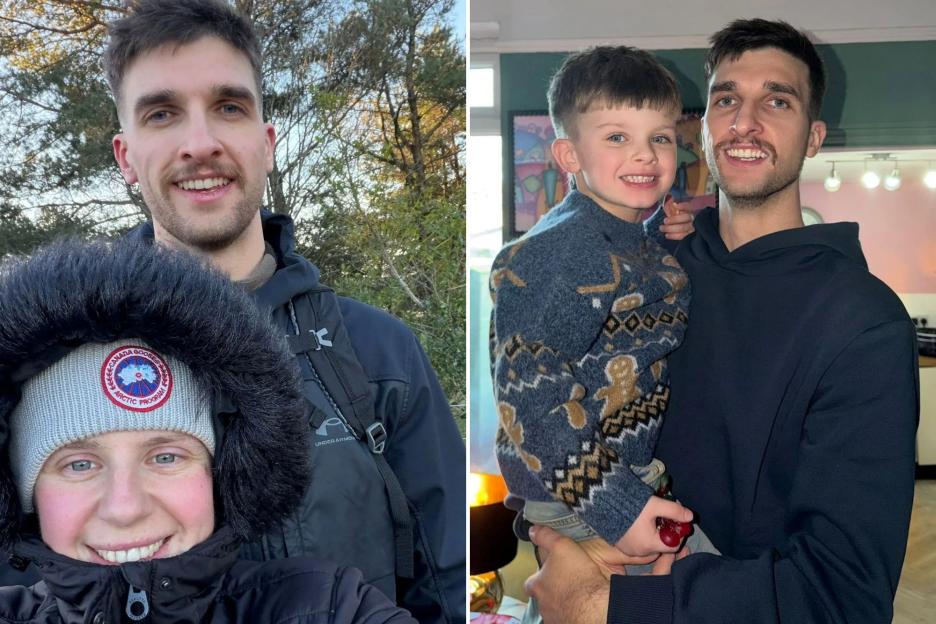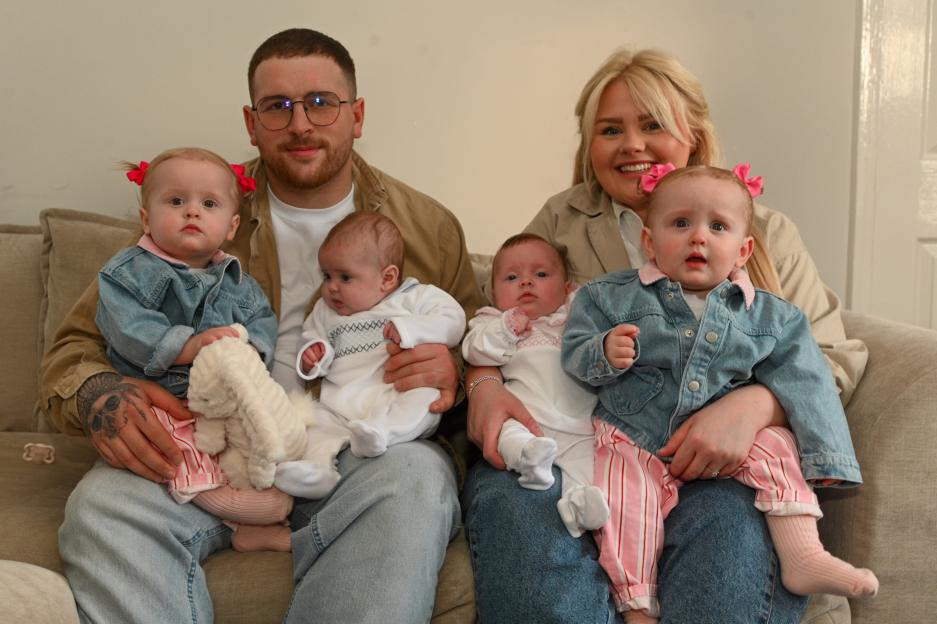YOUR morning brew could protect against a silent killer condition linked to heart attacks and stroke – slashing your risk by up to 27%.
About 1.5 million Brits are thought to have (AF) – a form of abnormal heart rhythm that causes your heart to beat irregularly or too fast.
 Atrial fibrillation can cause a fast, fluttering or pounding heartbeatCredit: Getty
Atrial fibrillation can cause a fast, fluttering or pounding heartbeatCredit: Getty
While the condition itself isn’t life-threatening, it can cause blood to pool and form clots.
Having AF can up your risk of having a five times, according to the British Heart Foundation (BHF).
Sufferers are also at higher risk of heart failure and heart attack.
People with the condition are often advised not to drink caffeinated , for fear of triggering abnormal heart rate episodes that feel like pounding or fluttering in your chest.
In fact, the tells sufferers to avoid triggers such as caffeine – as well as spicy food, stress, dehydration and lack of .
But results from a new study conducted by US scientists may cause some to rethink this advice.
The trial – dubbed Does Eliminating Coffee Avoid Fibrillation or DECAF – found that patients with persistent irregular heartbeats who drank coffee had a “significantly” lower risk of atrial fibrillation recurring, compared to people who abstained from the brew.
Coffee drinkers had a 47 per cent risk of having another heart rhythm episode, compared to 64 per cent for non-coffee drinkers.
This means coffee drinkers overall had a 27 per cent lower risk of atrial fibrillation recurring.
Dr Gregory Marcus, a cardiologist and professor of at the University of , who led the DECAF study, said: “There is no standard advice for atrial fibrillation and caffeine.
“It is very common for me to encounter patients who have stopped drinking caffeinated coffee only because their physician has told them to do so because of their atrial fibrillation.”
The findings of the study were published in Journal of the American Medical Association and also presented at the American Heart Association conference in New Orleans, according to NBC News .
The clinical trial examined the effects of drinking coffee in people with a history of irregular heart rhythm that had either resolved on its own – known as paroxysmal AF – or been treated, meaning they had persistent AF.
Researchers recruited 200 adults with an average age of 70 in , and the US who were regular coffee drinkers at some point in the last five years.
Participants were randomly split into two groups: those who cut out caffeine, and those who had at least one cup every day.
Everyone self-reported how much coffee and caffeinated drinks they consumed in video check-ins one, three and six months into the trial.
Dr Marcus and his team used data from electrocardiograms (ECGs) taken in a doctor’s office, wearable heart monitors, to determine if and when people in each group had developed an irregular heartbeat.
During the six-month study, 111 people, or 56 per cent, had a recurrent episode of AF.
Atrial fibrillation explained
YOUR heart is controlled by a conduction system, which sends out electrical signals. This is what causes a heartbeat.
Atrial fibrillation is a type of – a problem with the conduction system that can make your heart beat too slowly, too quickly or in an irregular way.
happens when the electrical signals in the top chambers (atria) of your heart do not get sent out properly.
They should be steady and regular, but instead they quiver or twitch (fibrillation).
This causes your heart to beat randomly, which means it does not pump blood as well as it should.
Atrial fibrillation is not life-threatening itself, but it can create blood clots in the heart that may cause a .
Many people won’t experience any symptoms at all, but some have palpitations, chest pain, tiredness, shortness of breath and dizziness.
The cause is not always known, but the most common is damage to the heart.
This can be caused by things like , , , , and .
It is also associated with other medical conditions, including , , and .
But not everyone with atrial fibrillation is unwell, and it can sometimes affect people who are physically very fit, such as athletes.
Treatment may include , ablation, cardioversion and having a pacemaker fitted.
Source: British Heart Foundation
Researchers found that coffee drinking participants were less likely to have an AF recurrence during the trial.
They also went longer before getting their first one during the study period.
Dr Marcus said: “I was somewhat surprised at the magnitude of how protective caffeinated coffee does seem to be to prevent atrial fibrillation.”
It’s unclear why coffee might have a “protective” effect when it comes to AF, he added.
The scientist suggested that an anti-inflammatory compound in coffee – not specifically caffeine – could have reduced recurrence of AF in the coffee-drinking group.
Alternatively, caffeine could also stimulate the body’s adrenaline response to help stave off the condition.
The study found that drinking just one cup of coffee per day appeared to have a protective effect.
While some people in the study did drink more than that, it’s unclear if more than a cup of coffee per day could have any effect on AF recurrence.
Dr Johanna Contreras, a cardiologist at Mount Sinai Fuster Heart Hospital in , who was not involved in the study, said the most significant takeaway was that drinking a cup of coffee a day seems to be perfectly safe for people with AF, rather than that coffee is protective.
She told News: “There’s not a hard-and-fast rule. Not everyone has the same reaction to caffeine.”
The study had some limitations, including that researchers didn’t track the effects of other caffeinated drinks except coffee.
They also didn’t track differences in exercise habits or diet, which can affect heart .
People who drink coffee may also be exercising more, Dr Marcus suggested, lowering the risk of AF recurrence.
The findings may also not translate to people whose AF is not being treated.
Dr Marcus noted: “If someone was in the midst of AF, caffeine could certainly increase the pulse rate during that episode and therefore lead to worse symptoms.”
It’s not the first time studies have linked – with Swiss scientists saying the brew may even boost brain .






